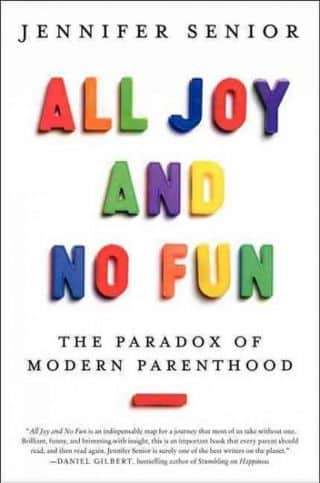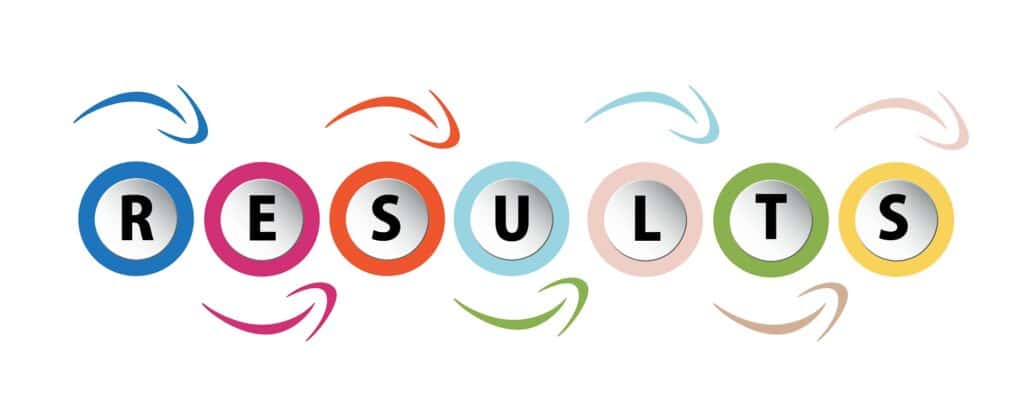The title of this book is too good not to borrow for this post. All Joy and No Fun: The Paradox of Modern Parenting, by Jennifer Senior, is firstly a social history of parenting, secondly an examination of the effects of children on parents (we usually think about the reverse), and thirdly a prompt to reconsider our roles. I was struck by the title; I know it’s an exaggeration, but it seems to make most parents laugh and wince at the same time. Of course, Senior’s remarks are based on USA, and may not be transferrable. Nevertheless, they are thought provoking and I can also recommend her terrific TED talk.

As a child, I know I had little sense of my parents’ fallibility. I assumed they were following generations of wisdom and finely honed practices. My faith in a single absolute method was shaken when I saw the very different ways my friends’ families operated, and I can pinpoint the end of my faith as the time I looked at the starkly contradictory books on the shelves in bookshops. My own parenthood has certainly confirmed my skepticism about the possibility of getting it right, as I frequently tell my children, to their horror.
The truth is that for child-raising there is no folk wisdom in a multicultural, fast moving and rapidly evolving world, because the very meaning of the word parent has changed. Senior points out that for most of history, the parent-child relation was based on fair-exchange ‘with parents sheltering and feeding their children and children in return kicking something back into the family till’. Even until the late nineteenth century, children were more likely to work outdie the home than their mothers, and boys often earned more than fathers. Post WWII the family system ‘became asymmetrical. Children stopped working, and parents worked twice as hard. Children went from being our employees to being our bosses.’ (!) I find the mixing of the vocabularies of family and work jarring, but Senior agues that’s only because I am younger then 70, when modern childhood was invented.
What might this mean for us? In 1977 American psychologist Jerome Kagan remarked that the modern child cannot ‘point to a plowed field or full woodpile as a sign of his utility’. Hence Kagan predicted, with uncanny prescience, that children are ‘at risk of becoming overly dependent on praise and repeated declaration of love to build their confidence’. This seems to resonate with much modern research that suggests that parents and teachers who build children’s confidence by declaration, rather than by creating opportunities for achievement, are doing children no service. We need to give children demanding tasks, and support them to success, rather than give them empty praise for who they are. So, while love might be unconditional, praise should be tied to specific named things (in fact we need to tread very carefully with praise at all, but that’s a topic for another day).
What stood out in this fine book, however, was the way it made me re-consider my own beliefs regarding parenting. Sometimes, when I am at a loss to know what to do, it’s comforting to see that at one stage ‘parent’ was just a noun. We could just be parents. Then in 1970 it became a verb, and we now have to do it. For me that’s a problem (how I envy my parents!), because I can manage to be, but as I suggested above, I’m not always sure what I should be doing.
One thing, though, that I am sure about is that our children make us do different things. And that’s a wonder where Senior absolutely hits the nail on the head: ‘The dirty secret of adulthood is the sameness of it; its tireless adherence to routines and customs and norms. Small children may intensify this by virtue of the new routines, but they may also liberate.’ There’s truth there, and while we sometimes grumble about the demands of an intense parenting life, it probably overlooks the genuinely profound effect that children have. That is, it’s easy to talk about the many, many practical daily demands of parenthood; far harder to remember that, new verb aside, parenthood transforms the very people we are; and probably for the better. We can take Senior’s prompt as a reminder to marvel at the sheer wonder of our children, who can become the catalysts for our own rediscovery. Parents with newborns, know this, and it’s welcome reminder throughout the school years:
‘The vocabulary for aggravation is large; [that for gratitude smaller, and] the vocabulary for transcendence is elusive’.
Senior argues, therefore, that our children give us chances to be better than our daily selves. If we can remember to step away from everyday distractions, to marvel at bringing infants into the world we can better understand our own place in the human story. We can let our children create opportunities for us to be our best and most joyful selves.
References
- Senior, Jennifer (2014) All Joy and No Fun: The Paradox of Modern Parenting: Eco Press: 131
- Kagan, Jerome et al (1980): Infancy, Its Place in Human Development: Harvard University Press: 34



2 Responses
Thank you Nick, praying both you and wife are recovering very well.
Absolutely agree on the over-praising on our children, they very quickly notice too whether mama is real or just saying it.
Thanks Lisa! We are well and looking fwd to being back 🙂